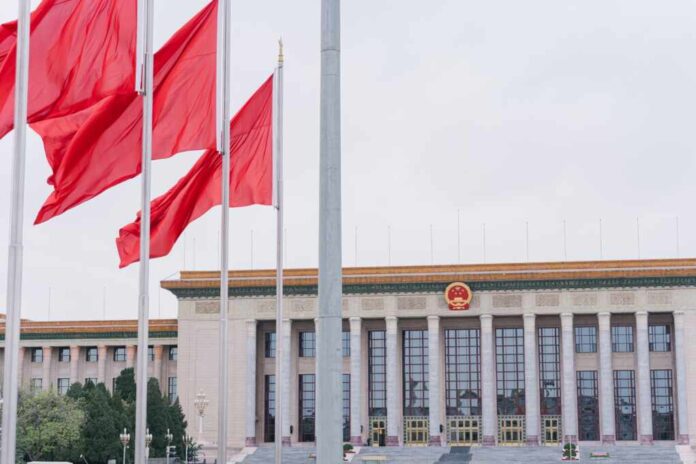
Trump scores a massive 115% tariff reduction deal with China, but conservatives should be skeptical of this temporary 90-day trade truce that leaves America vulnerable to Beijing’s economic warfare.
At a Glance
- US and China agreed to slash reciprocal tariffs for 90 days, with US tariffs on Chinese goods dropping from 145% to 30%
- The “temporary” agreement maintains a 10% minimum tariff threshold while negotiations continue
- The US will keep 20% tariffs on fentanyl-related products amid ongoing Chinese drug trafficking concerns
- Global stocks rallied on the news with analysts calling it a “dream scenario” for market bulls
- A permanent mechanism for ongoing trade discussions will be established, raising concerns about long-term American economic interests
Another Short-Term “Win” That Could Backfire
The Trump administration just announced what the mainstream media is breathlessly calling a “major de-escalation” in trade tensions with Communist China. After negotiations in Geneva, both countries agreed to slash their reciprocal tariffs by 115 percentage points for an initial 90-day period. US tariffs on Chinese goods will drop from a robust 145% to a measly 30%, while Chinese tariffs on American products will decrease from 125% to just 10%. Sounds great on paper, right? But as with any deal involving Beijing, the devil is in the details.
The agreement requires implementation by Wednesday and establishes yet another diplomatic “mechanism” for ongoing discussions on economic and trade relations. These talks will be led by Chinese Vice Premier He Lifeng, Treasury Secretary Scott Bessent, and US Trade Representative Jamieson Greer. Notice how China sends one representative while America sends two? Already the negotiating table seems tilted. And let’s be honest – 90 days is nowhere near enough time to establish a comprehensive trade agreement with a regime that has consistently manipulated currency, stolen intellectual property, and flooded our country with deadly fentanyl.
Markets Love It, But Should Patriots?
Wall Street, predictably, is ecstatic. Global stocks rallied following the announcement, with significant gains in European and Asian markets. The US dollar index rose by 1%, and the yield on the 10-year Treasury note increased by 6 basis points. Analysts are practically giddy, describing the deal as a “huge win for the market and bulls.” But when was the last time what was good for Wall Street was actually good for hardworking Americans? These are the same financial elites who’ve been offshoring American jobs to China for decades while enriching themselves.
“Today’s announcement even exceeds our constructive expectations” – strategists at Deutsche Bank.
Of course Deutsche Bank would be thrilled – they and other global banks have billions invested in Chinese markets. The effective US tariff rate on Chinese imports is now reduced from 108.8% to 27%, which means Chinese products will once again be flooding American shelves. While some Americans might enjoy temporarily cheaper goods, what happens to our manufacturing base? What happens to our supply chain security? Have we learned nothing from the pandemic about the dangers of depending on hostile foreign powers for essential products?
The 90-Day Countdown Has Begun
Trade between the US and China is expected to resume swiftly, reversing declines in freight and shipping since April. That’s all well and good, but we’re essentially giving China a 90-day window to dump products into our markets while they continue to subsidize their own industries and steal our technology. The agreement emphasizes the importance of a “sustainable, long-term, and mutually beneficial economic relationship” – but when has China ever demonstrated a commitment to mutual benefit? Their entire economic strategy is built on asymmetric advantage.
“The magnitude of this tariff reduction is larger than expected… Overall, we expect the market to get back on to a risk-on sentiment in the near term” – Tai Hui.
At least the administration maintained the 20% tariffs on fentanyl-related products, acknowledging the chemical warfare being waged against American citizens by Chinese suppliers. But is that enough? This temporary agreement might boost inventory increases and container freight demand in the short term, delivering a nice quarterly boost to corporate earnings reports. But what about the long-term health of American industry? What about our national security? The 90-day clock is ticking, and America’s economic sovereignty hangs in the balance while Chinese negotiators prepare their next move.




























